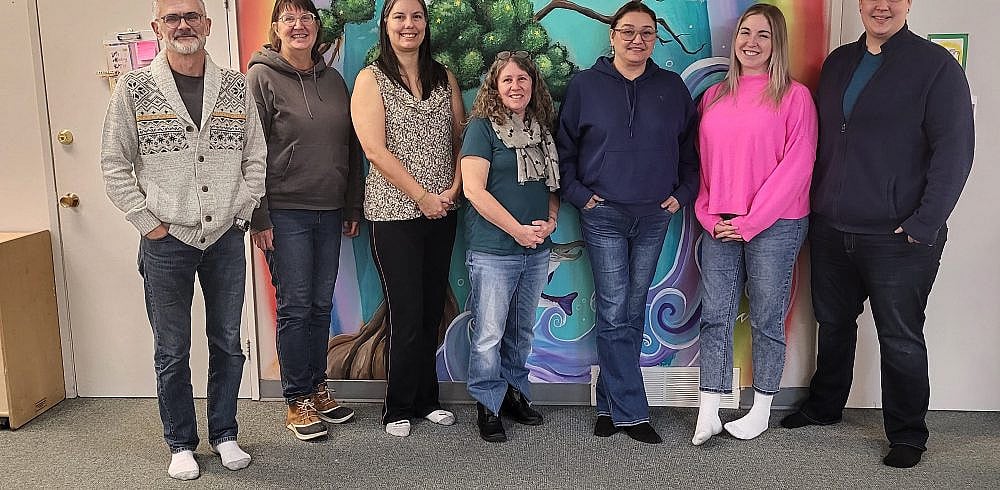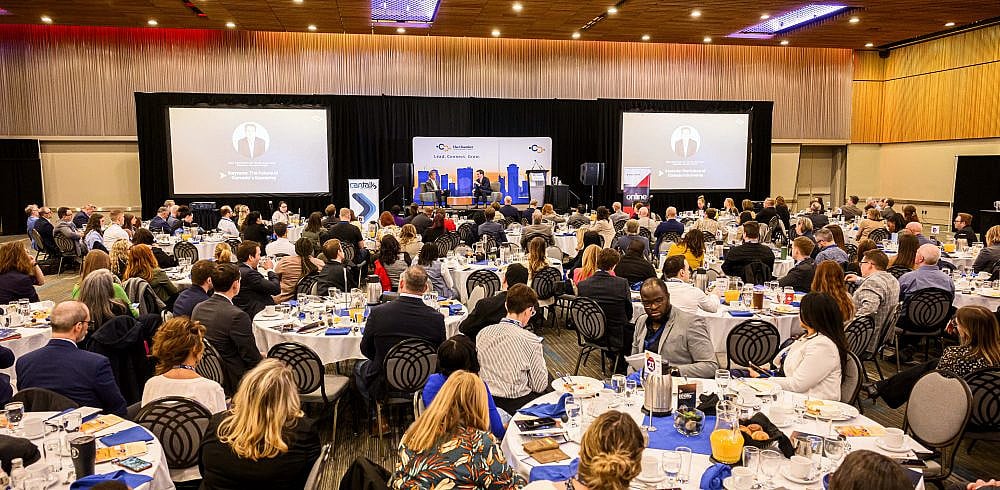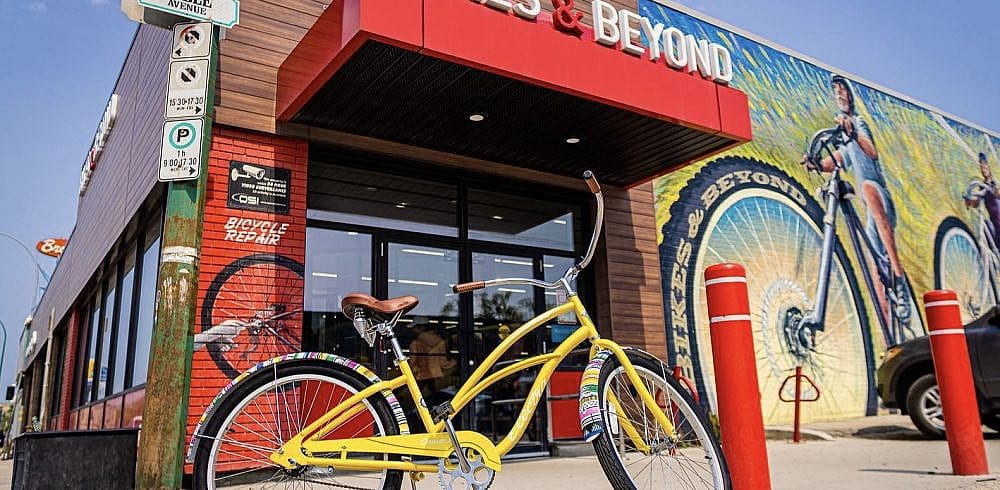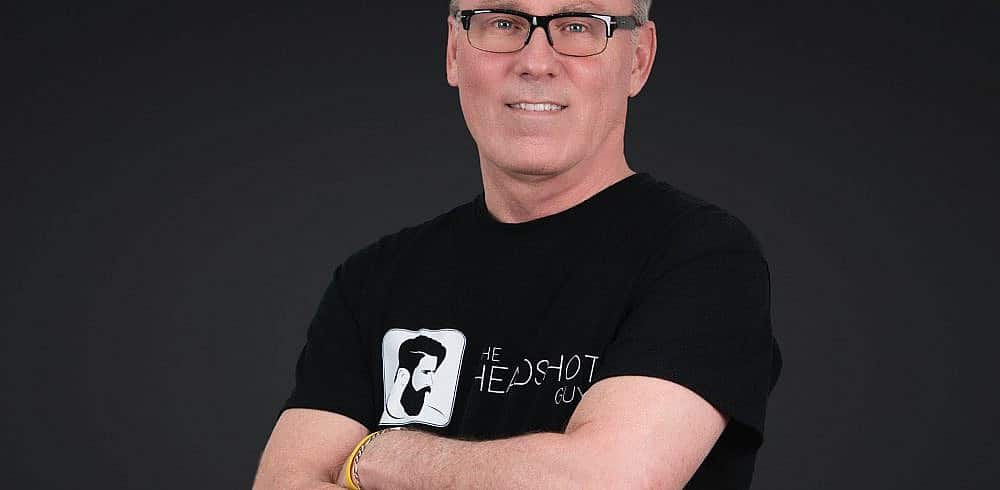By Noah Cote, Communications Manager, The Winnipeg Chamber of Commerce.
Ahead of our upcoming member luncheon, “Enhancing Our Ecosystem for Entrepreneurial Innovation” with Dharmesh Gandhi, Partner, EY, we sat down with Dharmesh to explore what Winnipeg entrepreneurs need to know, how to build a successful network, and get a glimpse of what you’ll gain during his fireside chat.
Read our conversation below, and hit this link to register for our October Membership Luncheon and hear from Dharmesh live on October 23.
Noah Cote: You’ve supported a ton of businesses at various stages of growth throughout your career. What advice would you give to a Winnipeg entrepreneur who’s just starting out?
Dharmesh Gandhi: There’s three pillars you want to look at when you’re just starting out. First, you want to look at funding: How are you going to achieve funding for your business so that you can achieve your growth targets? Is it going to be government funding, angels, venture, bootstrapping? Because that should impact every decision you make and how fast you’re going to grow, how fast you’re going to hire.
The second one is mentorship – it’s something that I talk about very often. Do you have mentors within your product’s industry that can find you connections, and provide you with sound advice? Have these mentors priced or produced something similar and can they give you guidance?
And third is a supportive network. Seek out groups of people who can help you amplify your vision. Find both clients and service providers that are going to help you grow, help you think through what your business is going to need, and determine if you have the right inputs and outputs to meet your goals.
NC: What excites you about Winnipeg as a hub for entrepreneurial innovation today, especially in light of the growing global trends of sustainability and digital transformation?
DG: I think the thing that’s really exciting about Winnipeg and Manitoba as a whole is that you have all of the inputs necessary to be really successful. You’ve got a large cache of critical minerals, you’ve got great universities with excellent talent, and you’ve got anchor technology companies that are growing the pool.
That enables Winnipeggers to start building out the scaffolding and the foundations of an entrepreneurial ecosystem. I think the hardest part is getting started. And once you have those initial inputs, then it’s just figuring out what the right mix is that will enable entrepreneurs to grow and succeed within the ecosystem. I’d like to give a shout out to Premier Wab Kinew as well. It sounds like he’s doing a wonderful job and he’s really focused on the right things to help Manitobans be successful.
NC: You’ve worked with incubators and accelerators, including Next Canada. Why is mentorship so critical to an entrepreneur’s success, and how can Winnipeg leaders and workers strengthen their mentorship networks?
DG: Ask.
LinkedIn is a wonderful tool. You can always find somebody whose career you want to emulate and reach out to them. I guarantee you that if you reach out to five people, at least one or two of them will get back to you and will be happy to have a coffee meeting with you. And just realize for the people that don’t respond, it’s not that they didn’t want to respond, it’s likely they just got busy. If you follow up, they will respond.
For those on the other end, who get reached out to, I think it’s important to realize that it’s your responsibility as somebody who’s been successful in business to help the next generation. Just telling people how you were successful, what things you did in your career, what mistakes you’ve made, what right decisions you made can go a really long way in accelerating the whole ecosystem within the region.
I like the saying that rising waters raise all ships. You want to have as successful an ecosystem as you can within a region because it will help everybody.
NC: Now, I’m curious, what’s a mistake you’ve made in your career that you would want to share?
DG: Not believing in myself enough? I have had imposter syndrome my entire career. I have never felt like any of the successes I’ve had were due to anything that I’ve done. It was just luck. And it can be a real detriment because it stops you from taking on new risks. It stops you from driving to be more successful. It stops you from believing in yourself.
It’s important for people to realize that everybody has imposter syndrome, and nobody feels like they’re incredibly special or successful. And that’s okay – but you need to never stop taking risks. Taking risks is the most important thing you can do.
If something scares you, you should 100% do it because it’ll help you grow. And if you’re constantly growing, you’ll end up in a place where you’re in your career, where you’ve surpassed everybody because you’ve spent all this time learning new skills that they simply did not.
NC: What has been one of your most rewarding experiences working with a Canadian startup?
DG: I have so many. You know, I tend to start working with companies when they’re very early on. Oftentimes they’re pre-revenue or just two founders, and they’re just kind of getting going. It’s really, really rewarding to watch those companies grow.
And this is the thing that technology enables that it was much harder to do previously. All you need is a laptop and an idea and the drive to push that idea forward, and now a company with two people can become a company of 200 people in a span of three years just because they’ve received the right advice and they’ve been able to utilize government funding, they’ve been able to access the markets, they’ve been able to access and receive funding that they’ve been able to grow.
So knowing somebody who started their company after university and after a number of years they are closing in on unicorn status has been incredibly rewarding because they’re employing lots of other Canadians, they’re helping others grow and their technologies are being used worldwide. It’s really, really cool to see.
NC: What’s something about your career or life journey that might surprise people?
DG: I actually started my career in the investment banking world after I graduated as an engineer. And I very quickly pivoted into a small consulting firm that was only about 25 people. Over a couple of years, I was lucky enough to have a leadership role at that company, and I was able to help it grow very, very quickly so that it was eventually acquired by EY and that’s actually how I ended up here.
If you’d asked me as a student in engineering school if I’d end up working at one of the largest accounting firms in the world in the world as a tax partner, I would have been stunned. I never thought that that would be something that would happen. But throughout all of that, what guided me was I always loved – and I know people often say this but – I genuinely love the work.
NC: Who should attend your luncheon on October 23 and what do you hope they leave with?
DG: I think if you believe entrepreneurship is at the heart of most successful economies, you should attend this luncheon.
Having worked with entrepreneurs for over 20 years now, what I hope to share is what I’ve seen, what I’ve learned, and what I think has made these entrepreneurs successful.
It’s not a complicated mix. It’s about taking risks, and believing.
NC: Awesome, looking forward to it. Thank you Dharmesh.
DG: Thank you.
An EY Canada Partner who leads their private business incentives practice nationally, Dharmesh’s team works hand-in-hand with Canadian clients to understand the credits, grants and incentives available to them and translate those opportunities into leading-edge developments.
Since joining EY’s dedicated SRED practice in 2011, Dharmesh has led business tax incentive credit engagements from coast to coast. His team empowers clients to identify and tap into legislative and discretionary sources of government funding to fuel their innovation programs.




